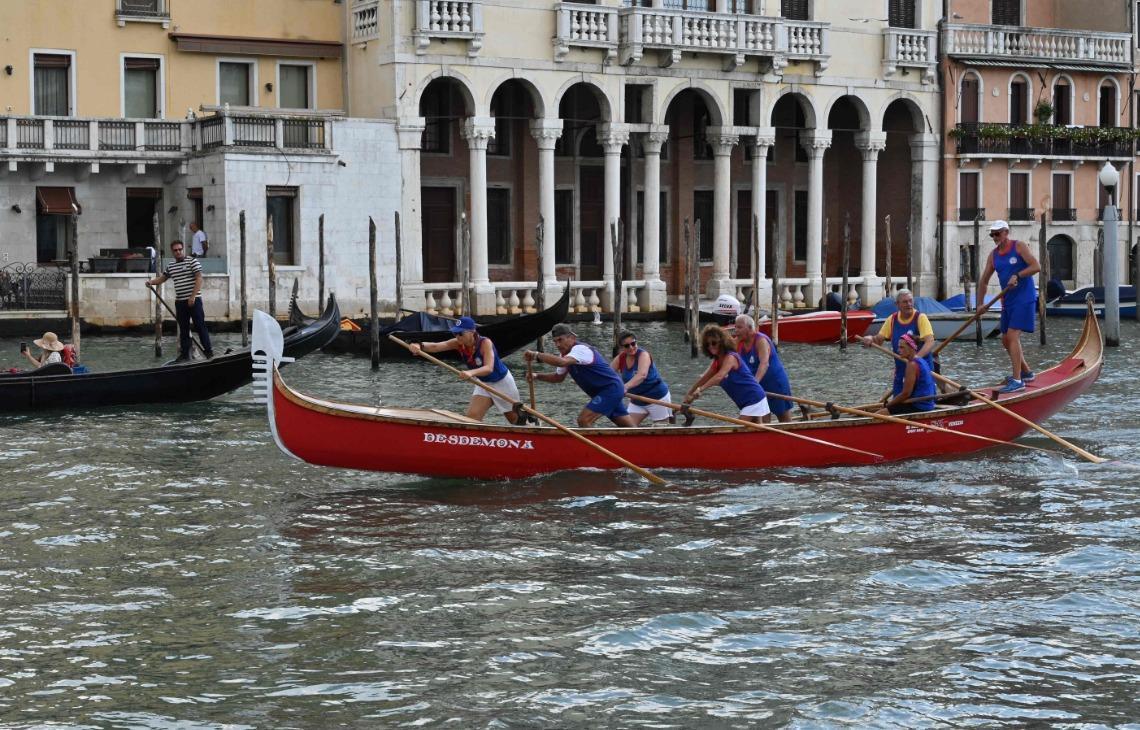
The U.N.'s cultural agency UNESCO on July 31 recommended that Venice be added to its list of world heritage in danger, saying the Italian authorities needed to step up efforts to secure the historic city and its surrounding lagoon.
UNESCO said in its recommendation that Venice risked "irreversible" damage due to a string of issues ranging from climate change to mass tourism. The recommendation will now go to a meeting of UNESCO's World Heritage Committee in Riyadh in September for adoption.
"The effects of the continuing deterioration due to human intervention, including continuing development, the impacts of climate change and mass tourism threaten to cause irreversible changes to the outstanding universal value of the property," said UNESCO.
"Some of these long-standing issues have already led to the deterioration of the inherent characteristics of the property and its attributes," UNESCO said, warning that developments including high rise buildings risk "having significant negative visual impact".
"Moreover, the combined effects of human induced and natural changes are causing deterioration and damage to build structures and urban areas," it added.
It said that overall, there was a "lack of significant progress" by Italy in addressing these issues and this was further "hindered by a lack of overall joint strategic vision."
A draft resolution prepared for adoption by the World Heritage Committee said there had not been "a significant level of progress in addressing the persistent and complex issues" and added measures proposed by Italy were "still insufficient and need to be further developed."
UNESCO said it hoped inscription on the danger list "will result in greater dedication and mobilization of local, national and international stakeholders."
The World Heritage Committee, which oversees the awarding of the coveted World Heritage label to sites around the world, is due to meet in Riyadh from September 10-25.
It is due to consider 53 new candidate sites for addition to the World Heritage List.
Intense lobbying is often employed by delegations to ensure their national cites are given - and retain - the status.
The "in danger" label aims to encourage the better preservation of the site for the future. In exceptional circumstances a site can be stripped of its World Heritage label if the steps are deemed unsatisfactory.
Venice was included on the World Heritage List in 1987 but its state has concerned UNESCO for some years.
It avoided being named a world heritage site in danger in 2021, weeks after Italy moved to ban large cruise ships from sailing into the city center.
In the city itself as the recommendation was announced, there was agreement that the current state of the city was letting everyone down.
"It's uncontrollable" said gondolier Antonio Vertotto, of the masses of tourists who visit the city each day, adding that the government had done "nothing" for years to control it.
"I would say there are too many tourists, but the solution, that's hard to say," said tourist Valmir Reznik, 34, visiting for the day from Switzerland with his wife. "We thought it's Monday, maybe it's not so full, but we were wrong."
New York tourist Ashley Park, 28, said she knew it would be crowded in Venice, but it wasn't ruining her vacation. "Obviously if we lived here with all these tourists it wouldn't be fun," she acknowledged.
Among the crowds on the historic Rialto Bridge was city worker Diego Nechifrovo, 23, wearing an #EnjoyRespectVenezia T-shirt, who was busy keeping an eye out for misbehaving tourists.
"Sometimes I see someone throwing away his cigarette or walking around without a T-shirt," he said, noticing a bag of potato chips discarded on the doorstep of a jewelry shop.
The worst? One time a family "sat down right in front of the Doge's Palace and started to set up a picnic."
A few weeks ago, a distracted tourist fell into the water, Nechifrovo said. "He was trying to get a good photo."
In a related recommendation announced on July 31, UNESCO said its experts believed Australia needed more time to boost protection of the Great Barrier Reef before it was declared "in danger" due to the risk of damage from climate change.
On the basis of progress made by Australia, UNESCO said the natural wonder's current state should not be discussed at the Riyadh meeting, but instead be revisited in 2024.